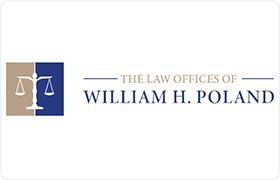Indian Mound Felony Lawyer, Tennessee
Sponsored Law Firm
-
 x
x

Click For More Info:
-
Law Offices of William H. Poland
408 Franklin St Clarksville, TN 37040» view mapCriminal Defense Law Sound, Professional, & Timely Service
As your attorney, you can be assured that we will use our best reasonable efforts to conclude your matter favorably and to keep you advised of the status of your case.
800-810-3461
Not enough matches for Indian Mound Felony lawyer.
Below are all Indian Mound Criminal lawyers.
Will Hall Poland
✓ VERIFIEDCriminal, Felony, DUI-DWI
What to know: We are a full-service law firm that focuses on the interest of our clients. I practice in the areas of: Bankruptcy Law, Criminal Law, Co... (more)
FREE CONSULTATION
CONTACTFREE CONSULTATION
CONTACTWill Poland
Criminal, DUI-DWI, Accident & Injury, Personal Injury, Workers' Compensation
FREE CONSULTATION
CONTACTAmy Catherine Bates
Adoption, Divorce & Family Law, Accident & Injury, Criminal
Status: In Good Standing Licensed: 16 Years
Jacob Prentice Mathis
Divorce & Family Law, Personal Injury, Criminal, Litigation
Status: In Good Standing
Debbie Evans
Criminal, Juvenile Law, Products Liability, Family Law
Status: In Good Standing Licensed: 30 Years
 Will Poland Clarksville, TN
Will Poland Clarksville, TN Practice AreasExpertise
Practice AreasExpertise

